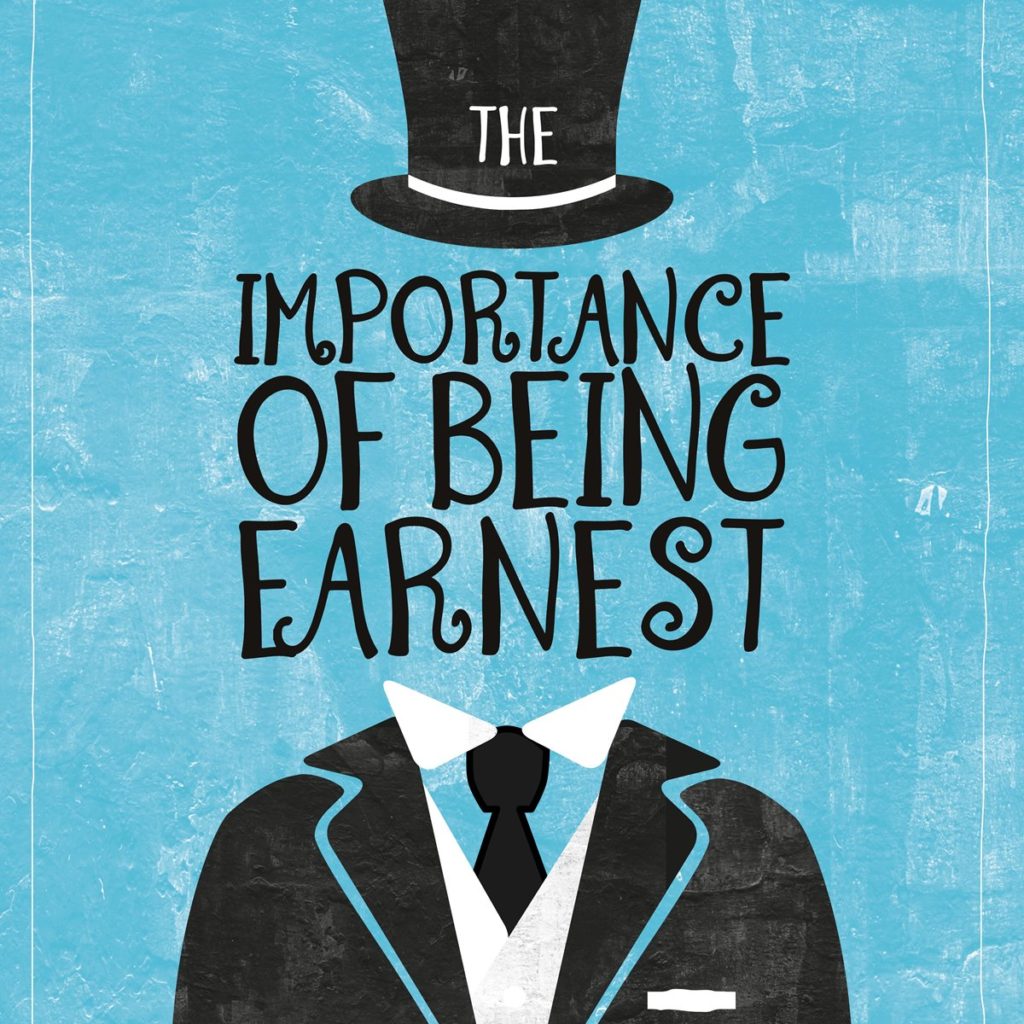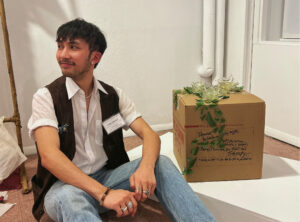The Importance of Being Earnest

Oscar Wilde's version of The Importance of Being Earnest was presented by the CUA Drama department this past weekend. Courtesy of cuatower.com
By Miriam Trujillo
The Catholic University drama department presented a fully staged version of Oscar Wilde’s The Importance of Being Earnest this past weekend.
The audience could tell that they were in for a lighthearted treat as soon as they walked into the theatre: A group of actors was gathered around the onstage piano, singing one song after another. In between songs, the actors reminded the audience to silence cell phones etc, in language that reflected Wilde’s famous wit. The atmosphere was so relaxed, that the audience could easily imagine that they were watching a scene in someone’s apartment, not a scene onstage.
The energy of the show did not dissipate much throughout the three act, expertly paced comedy. This energy stemmed from the actors’ genuine enjoyment and showed how much they appreciated the hilarity of the script. Each cast member had a deliciously over the top caricature of their characters, that they pulled off strongly and consistently throughout the show. “Lady Bracknell was especially amusing.” Says Grace Brizek, a sophomore vocal performance major who saw the show on Saturday. Standout performances included Joe Savattieri’s Algernon Moncrieff and Emberlien Disalvo’s Miss Prism. Both these performers elegantly combined exaggerated personalities with very believable line delivery and blocking. When watching them, the audience could appreciate how seriously these characters take themselves, even though they are absurd to any viewer.
The director, Rex Daugherty deserves special recognition. His clever use of movement, entrances, timings, and sound effects complimented Wilde’s artistic vision: Daugherty’s decisions were sensitive to Wilde’s perceptive view of the social world, and they enhanced Wilde’s absurd sense of humor: Lady Augusta Bracknell came across like a second Cruella de Vil, complete with dramatic entrances, flamboyant clothes, and a nose in the air.
“The thunder rumbling effects when Aunt Augusta came onstage were funny touches,” said Alexandra Kilgore, a sophomore politics and philosophy major who saw Earnest on Sunday.
The actors also emphasized particular lines that revealed dramatic plot twists, giving the audience the opportunity to appreciate the eccentric storyline of The Importance of Being Earnest. The attention to detail evident in the costumes and scenery portrayed the kind of society that the characters live in. It gave the audience an insight into why Wilde made much of the social criticism he does in the play. The most memorable detail of the show was the music that Daugherty interspersed between acts. In an approach much like the Elizabethan style of Shakespeare plays, (which heavily featured music whether it is relevant to the story or not), Daugherty included an ensemble in his cast, who periodically snuck onstage and sang and played music that provided a charming commentary on the show.
“I’ve never seen a play use little musical interludes as scene changes before, the way this one did,” says Kilgore, “It was interesting how the musicians were not only entertainment as the set rearranged, but were also their own little characters, in a way.”
“The musical additions were (for the most part) effective, and made the piece more accessible without compromising the play’s integrity.” Adds Brizek.
These directorial decisions helped to demonstrate to the audience how The Importance of Being Earnest is a multileveled theatrical joy. The story has all the delightful plot twists, absurd moments, and even more absurd revelations that can keep an audience completely enthralled from beginning to end. On the other hand, Earnest also has so much intelligent social commentary. Wilde has a way of taking a phrase that pertains directly to the action of the plot, and twisting it so that it makes a broad and satirical social statement. Many of Lady Bracknell’s lines, for instance, start by criticizing her daughter, or her nephew, and end by criticizing the absurdity of her society in general.
The director, cast and crew of this weekend’s performance knew how to make the most of Wilde’s best moments. They showcased the plot points and jokes that are the highlights of Earnest, and overall left the audience with a vivid image of one of Oscar Wilde’s best works.







